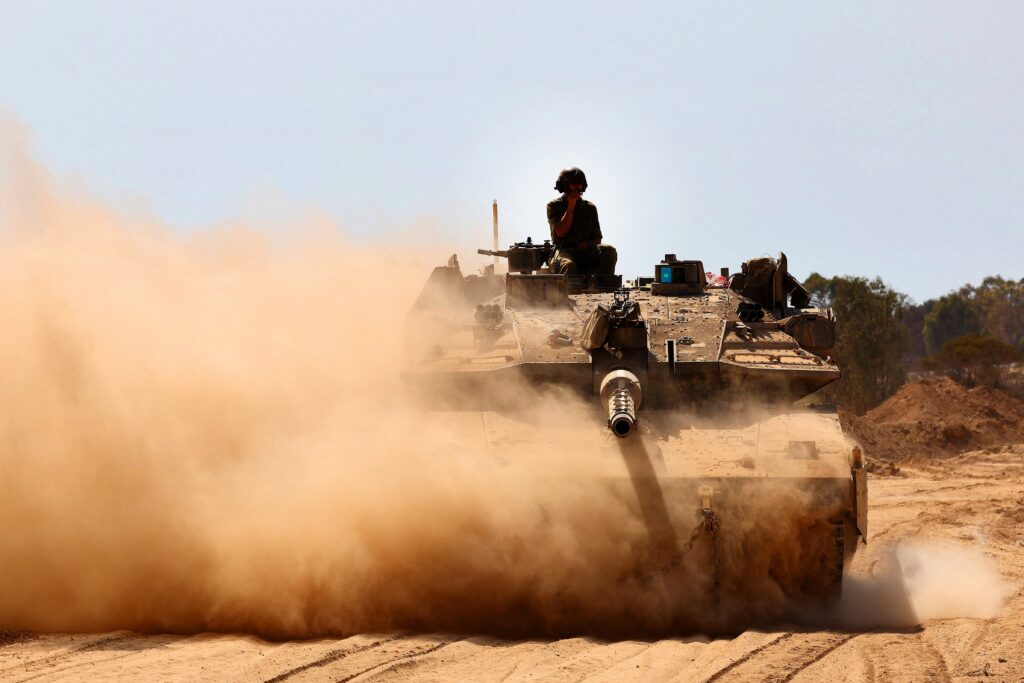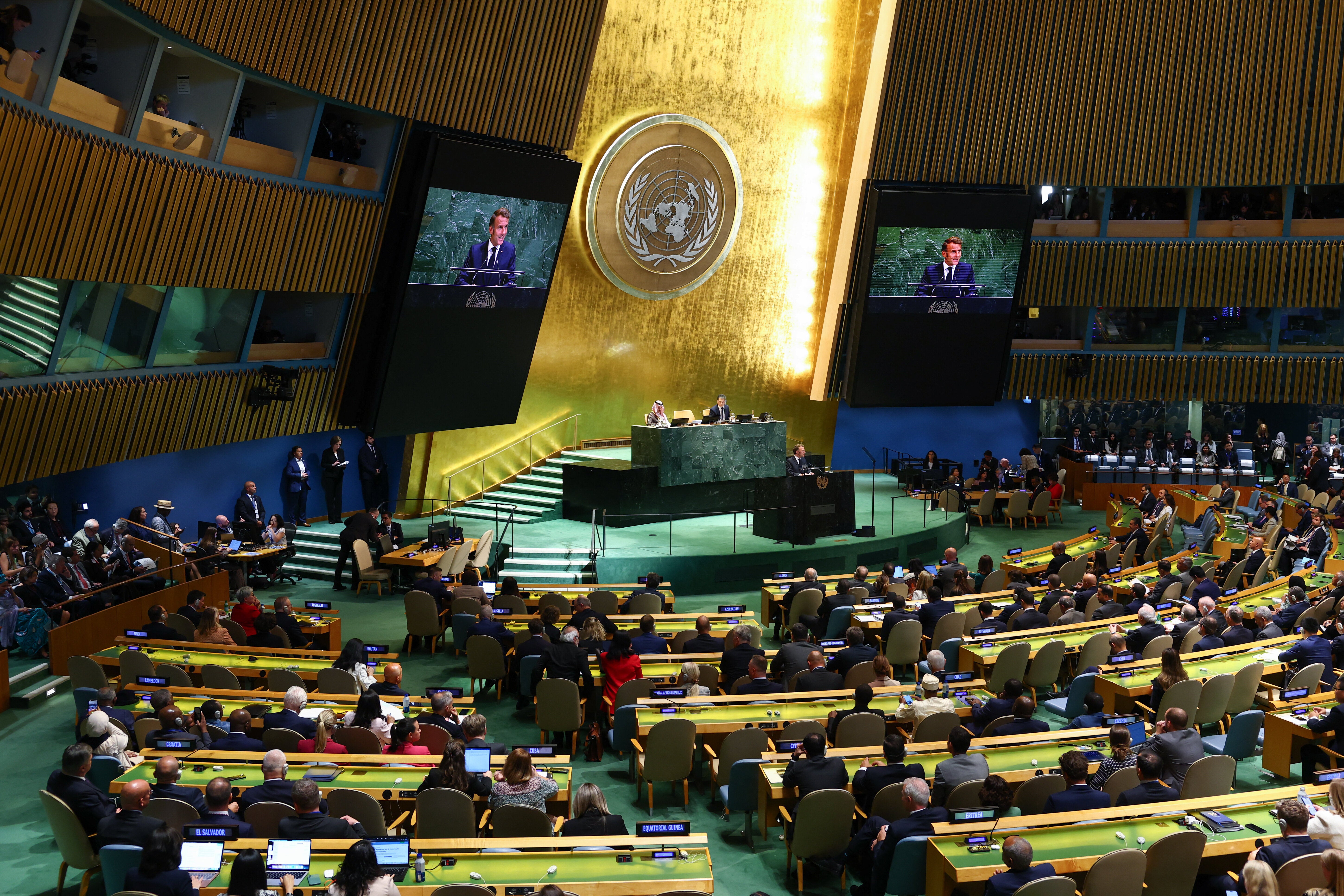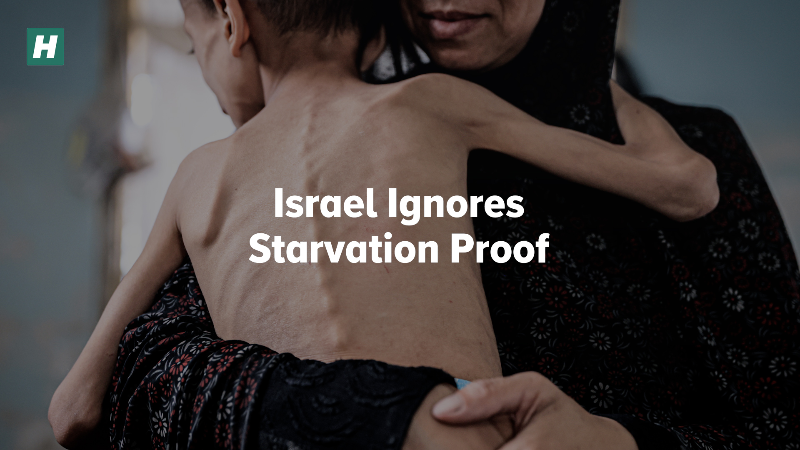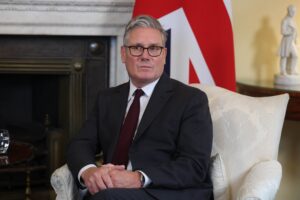UN Members Push For A Two-State Solution, As More Leaders Recognize Palestinian Statehood
Israel has rejected the idea of a Palestinian state, despite a growing number of Western nations declaring their recognition in response to the destruction of Gaza.

World leaders met at the United Nations on Monday to push for a two-state solution for Israel and Palestine, as the former’s ongoing unapologetic destruction of Gaza and illegal settlement expansion in the West Bank leads to more countries formally recognizing a Palestinian state.
Held on the opening day of the UN General Assembly’s high-level week of discussions in New York, the aim of the summit convened by France and Saudi Arabia is to set a clear path for an independent Palestinian state that would include Gaza, the West Bank and east Jerusalem.
“The time for peace has come, because we’re just a few moments away from no longer being able to seize peace. This is why we have gathered here today,” French President Emmanuel Macron said at the beginning of the meeting. “Some might say it’s too late, others might say it’s too early. But one thing is certain: We can no longer wait.”
More than 150 of the UN’s 193 members already recognize a Palestinian state, though Western nations like the United States have hesitated in the past to join them, believing statehood could only be reached through negotiations with Israel. But Israeli Prime Minister Benjamin Netanyahu has made clear his opposition to Palestinian statehood, threatening to respond by potentially annexing the West Bank.
Western hesitation, however, is changing. Australia, Canada, Portugal and the United Kingdom announced their recognition of Palestine this weekend, and France made its declaration at the Monday summit. Palestinian President Mahmoud Abbas plans to address the meeting via video due to the Trump administration denying him a U.S. visa to attend the conference in person.

Much of the international community has long believed that a two-state solution is the only viable way to resolve the conflict between Israel and Palestine, which started more than a century before Hamas’ Oct. 7 attack sparked Israeli military’s current Gaza offensive that has been labeled a genocide by several human rights groups, genocide scholars and UN reports ― the latest of which was released last week.
Israel has vehemently denied the accusation, accusing critics without evidence of supporting Hamas. The U.S. has backed Israel in its defiance, continuing to supply the weapons that have turned Gaza into an uninhabitable wasteland. The U.S. again vetoed a Security Council resolution on Friday that demanded an immediate, unconditional and permanent ceasefire in Gaza, an end to Israel’s aid blockade and the unconditional release of hostages held by Hamas.
Palestinians, human rights experts and world leaders have expressed cautious hope that any statehood recognition on the world stage will translate into action on the ground in Gaza, where for the last two years Israel has flattened the enclave, and killed and starved the Palestinian people.
“Unless the decision is followed by a renewed and robust peace negotiations that bring an end to Israel’s war in Gaza as well as the settlement and annexation policies in the occupied West Bank, recognition will be too little and far too late,” Syracuse University history professor Osamah Khalil said in a statement to HuffPost.








